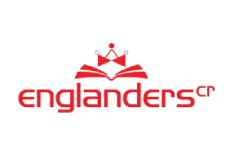Across the world, almost all education systems have many things in common. One of those things is a wide range of subjects in the secondary school curriculum. Almost everywhere in the world, students between about 11 and about 17 years of age study between 10 and 15 subjects in school. These are usually the native language and literature (two subjects), mathematics, science (often as three separate subjects), one or two foreign languages, history, geography, social science, sometimes an ancient language like Latin, music and art. There are slight variations across the world, but the first separate subjects listed are more or less everywhere.
In the United Kingdom, we copy this model only for part of the secondary school age range. Students aged between 11 and 16 take this wide range of subjects, very much like students in other parts of the world. The way subjects are taught is often quite different in the UK, but that is a subject for a different conversation.
A big change in the British system occurs when students are 16. After five years of secondary education they take a set of examinations called GCSE (the General Certificate of Secondary Education), with everybody doing English, maths, some science and foreign language and then choosing other subjects to take the total up to around 10 or 12.
In the last two years of secondary education things change dramatically and the UK system then becomes very different from almost everywhere else in the world. In UK schools, students age 17 and 18 are able to concentrate on those subjects that are really important to them and which they really enjoy, and they are allowed to stop doing the other subjects. Typically, a British student at this age will be studying just three subjects at what is known as A Level (Advanced Level). These are very detailed, high level courses, so it doesn’t mean they are lazy taking just three subjects, it means they are very busy doing them in depth!
This opportunity to focus on their strongest subjects is normal for British students and they take it for granted, but international students who move into the British system love discovering the opportunities that it presents. So, for example, students who love mathematics and want to be computer scientists or astrophysicists can study a huge amount of more advanced mathematics and be extremely well prepared for the demands of British university degrees.
Or, for example, if you are an enthusiastic linguist, you can study the language and literature of your chosen subjects in great depth and the choice of languages is astonishing – as well as English literature, there are advanced level qualifications in French, Spanish, German, Latin, Greek, Japanese, Persian, Chinese, Arabic, Urdu and others.
The range of options is enormous, from Business to Biology, from Design Technology to Drama, from Law to Latin, from Politics to Portuguese, students immerse themselves in subjects that they love and it transforms the experience of school.
Englanders Scholarship Board Albania
Welcome to the online application portal for Englanders Scholarship Board Albania.
By submitting the following information you express your interest to participate in the merit based competition dedicated to talented students from Albania and the region.
Englanders Scholarship Board Albania secures reduced fixed tuition and boarding costs to best UK boarding schools.
The competition works on a ‘first come first served’ basis as places are limited to only 30 contestants who compete for 10 Englanders scholarships.
The competition includes some rounds of transparent selections including Maths and English tests followed by academic interviews.

